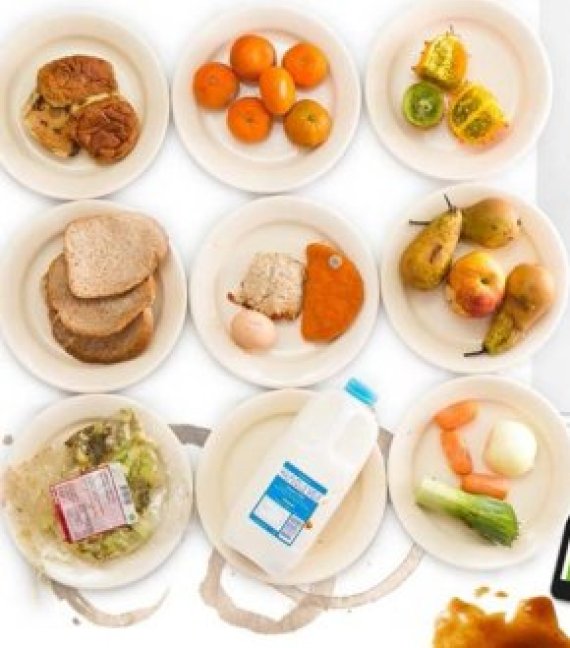About 1.6 million kilos of food is thrown out every year in Wageningen municipality. Bruised fruit, leftovers, and stale bread. Not only is this bad for the environment; it is also expensive. People do not seem to be aware that the costs of all these little bits mount up to about 150 euros per resident per year. Hilke Bos-Brouwers, DLO research at Food & Biobased Research, is studying how food waste can be reduced.
Between 16 March and 5 April, Bos-Brouwers is organizing a Food Battle. Wageningen residents and students and staff of Wageningen UR will do battle to see who can cut down their food waste the most. They will keep a diary to record precisely how much they throw out. Meanwhile they will report in an email on how they score compared with other participants and with the national average. Those who waste the least or achieve the biggest improvement have a chance of winning a dinner or a cookbook.
The aim of the battle is obviously to reduce food waste. Participants will be offered tips on being more frugal and smarter in the way they deal with food. Previous battles have resulted in people cutting their food waste by 20 to 30 percent. Bos-Brouwers also hopes to learn a bit about consumer behaviour. In what ways do different groups of consumers behave differently when it comes to throwing out food? To study this she asked people to fill in questionnaires about themselves and their habits. It is widely assumed that students waste more food than other citizens. This battle should make clear whether that is really true
THE BIN TEST
Resource went through the bin of a ‘student corridor’ at the Haarweg. On nine plates you can see how much the six residents chucked out in just under a week. ‘I am not very conscious of food waste,’ says Marten de Groot, who lives on the corridor, ‘but I did grow up with a frugal attitude. Wednesday was leftovers day at home with his parents. And his grandmother set a good example. She hated wasting food so much that she scraped the butter dish empty with a crust of bread. So when a lot of food comes out of the bin, De Groot gets an unpleasant surprise. He only threw out a few pears. He had bought too many because of a tempting special offer at the supermarket. ‘Sometimes I buy too much.’ And then a load of bread went stale faster than expected. We also find some mandarin oranges in the bin, some currant buns, some edible carrots and an onion. De Groot is amazed: ‘A litre of milk and a perfectly good egg. Who would throw that out?’ A housemate just coming in sheds some light on that. The milk may not have been past its use-by date but he thought it ‘smelt a bit sour’. The egg was left over after making pancakes. ‘And I can’t do anything with one egg.’ The egg will be rescued now, but the rest goes straight back into the bin.
KEY ‘LESS WASTE TIPS’ from researcher Hilke Bos-Brouwers – Make sure your kitchen is hygienic
Set your fridge at 4 degrees Celsius. The reduction in food waste is well worth the extra energy use.
Check your stocks regularly.
Reaching the use-by date is no reason to throw something out. If food looks and smells fine, it usually is fine. Do be careful with meat and fish, though.
Make a shopping list to avoid buying too much.
Share leftovers and ingredients with housemates, especially if you are going away for a while
Photo: Sven Menschel


